Discover Two Sides of the Spectrum
Two Sides of the Spectrum

Two Sides of the Spectrum
Author: Meg Ferrell
Subscribed: 674Played: 15,535Subscribe
Share
© 2021 Learn Play Thrive, LLC
Description
A place where we explore research, amplify autistic voices, and change the way we think about autism in life and in professional therapy practice.
Visit learnplaythrive.com/podcast/
Visit learnplaythrive.com/podcast/
113 Episodes
Reverse
When your Autistic clients have trouble identifying the emotions inside of their bodies, emotion-based regulation systems aren't always helpful. This episode is all about how regulation can be guided by energy levels. Specifically, how we help our Autistic clients match their energy level to what’s needed for the things they need or want to do. Our guests are the two incredible folks behind Autism Level Up. Jacquelyn Fede, who is an Autistic advocate and developmental psychologist and Amy Laurent, who is a developmental psychologist, a registered pediatric occupational therapist and co-author of the SCERTS model. Amy and Jacquelyn’s work show us that there’s no one right way to be regulated. And this model gives a profoundly impactful alternative to traditional models of regulation. This is an updated release of Episode 7 from 2020. Amy and Jacquelyn are also speaking at our 2026 Continuing Education Summit. Grab a ticket at learnplaythrive.com/summitWant MORE EPISODES of Two Sides of the Spectrum and recorded Q&As with our guests? Join us on Patreon at patreon.com/learnplaythrive. Your support on Patreon helps keep the podcast going.
View show notes and transcript at learnplaythrive.com/podcast
We all know that the plans and goals that we write deeply impact what our students and clients get access to learning. Joyner Emerick – a parent and openly Autistic school board director - has completely transformed the planning process in the best possible way. Joyner has a 10 year old who is minimally speaking with high adaptive and communication support needs. In this episode, you'll hear them talk about the future visioning process they created for their child. They’ll show you how it works, how you can implement it, and the 12 valued outcomes - as Joyner calls them - that they wrote for their son. This is not a process that's for sale. We're sharing it with you in its entirety so you can take it and use it in your work too. Don't miss the show notes for this one where we share a lot of the documents, and details, and language at learnplaythrive.com/podcast. Want MORE EPISODES of Two Sides of the Spectrum, recorded Q&As with our guests, and a listener chat forum? We just launched our Patreon and we need your support! Join our community at patreon.com/learnplaythrive
View show notes and transcript at learnplaythrive.com/podcast
This conversation with Autistic OT Sorcha Rice covers regulation for Autistic PDAers from absolutely every angle. The theme Sorcha kept bringing us back to is how we can provide more autonomy for our clients in how they identify their regulation needs and how they access their regulation tools. Sorcha walks us through a case study detailing how she supported a client who was deeply in burnout to help them access regulation, communication, connection, and safety. And at the end of the conversation, Sorcha shares five deeply transformative and practical things that you can try tomorrow in your work to help Autistic PDAers feel safer. Sorcha Rice is an Autistic PDA occupational therapist in Ireland. This is the second episode of our new twice monthly Patreon series where we showcase the people putting neurodiversity-affirming practice into action in their work. We'll explore their guiding principles and their practical strategies through conversation and case studies so that you can translate your values into your own work. Patreon subscribers also get access to recorded Q&A sessions with some of our most impactful podcast guests, and a Discourse forum to connect with other podcast listeners. Visit patreon.com/learnplaythrive to keep learning and support our podcast.
View show notes and transcript at learnplaythrive.com/podcast
Have you ever thought about what it would look like to put respect for the Autistic children who are your clients – respect for them as full human beings – front and center in your work? This episode goes deep into what that looks like in practice. Mick Olds (The OccuPLAYtional Therapist) helps us learn how to translate therapy goals into kids’ native language: play. They also share with us what exactly it looks like to put child-affirming values into practice, how they support PDAers, and what they do when they feel stuck in their own skills. This episode will change you.
View show notes and transcript at learnplaythrive.com/podcast
This isn't one of our normal podcast release days, and it isn't one of our typical topics, but this conversation is just too good not to share. This bonus episode is all about Autistic representation in media. In this episode, you’ll learn what comic books, TV shows, and more you should be recommending to your Autistic clients of all ages. Our guest Britton Payne is an entertainment attorney, recently of Warner Brothers Animation and Nickelodeon. On the side, Britton runs The Autism Scene, a non-profit advocating for the inclusion of explicitly, authentically Autistic characters in pop culture. This winter, The Autism Scene is running The AuSPEC AWARDS, which is a script competition…that maybe YOU will win! This episode is incredibly fun and impactful. Want MORE EPISODES of Two Sides of the Spectrum, recorded Q&As with our guests, and a listener chat forum? We just launched our Patreon and we need at least 100 people to join to keep the podcast running! Patreon.com/learnplaythrive
View show notes and transcript at learnplaythrive.com/podcast
So many of us feel unsure how to best support Autistic kids who have aggressive behaviors. But often, what we are missing in the most foundational need for all humans: to feel worthy and to feel loved. In this powerful interview, Autistic educational consultant Rabecca Hand shows us how to examine the environment and adult interactions - before looking at the child themselves - when a child is struggling. Then she teaches us how we can use this knowledge and the research behind it to create real change in the schools and the larger culture. Patreon subscribers also get a copy of Rabecca's thoughtful classroom management framework and her extensive resource list. This is the first episode of our new twice monthly Patreon series where we showcase the people putting neurodiversity-affirming practice into action in their work. We'll explore their guiding principles and their practical strategies through conversation and case studies so that you can translate your values into your own work. Patreon subscribers also get access to recorded Q&A sessions with some of our most impactful podcast guests, and a Discourse forum to connect with other podcast listeners. Visit patreon.com/learnplaythrive to keep learning and support our podcast.
View show notes and transcript at learnplaythrive.com/podcast
SLP Christina Schmidt strives to work in a way that centers a client's regulation, their identity, and their dignity. If that resonates with you, you won’t want to miss this conversation. Christina shares in detail how we can best support our clients with communication needs, our AAC users, non-speakers, kids who communicate through delayed echolalia in ways that are both neuro-affirming and culturally responsive. And she shares a model for supporting clients who don’t share our identities, applying it to a real life example of a client she supported who was deeply in burnout from being subjected to compliance-based practices. Christina Schmidt is a Black, African-American Australian, multicultural, and multi-dialectal AuDHD woman who proudly embraces her identity across all facets of her work and advocacy. She's the founder of Free to Be Me Speech Therapy where she provides neuro-affirming support to both kids and adults in a way that honors each person's unique communication needs, strengths, and ways of being. Her work is rooted in justice, joy, and the ongoing commitment to amplifying diverse voices and stories, always with the belief that we deserve to be seen, heard, and free to be. Want MORE EPISODES of Two Sides of the Spectrum, recorded Q&As with our guests, and a listener chat forum? We just launched our Patreon and we need at least 100 people to join to keep the podcast running! Patreon.com/learnplaythrive
View show notes and transcript at learnplaythrive.com/podcast
All behavior makes sense, we just have to make sense of it. In this conversation, psychologist Dr. Gillian Boudreau helps us see that underlying nearly any behavior is fear. And so often, the fear is related to a child being startled, feeling trapped, or being shamed. But if you aren’t looking for it, it’s easy to miss. In this conversation we explore the nuance of each of these - especially for PDAers - and Gillian's exact roadmap for concrete ways to avoid them (complete with clever acronyms for each). This is a must-listen episode to help you understand your clients' experience in their lives and during your sessions.
View show notes and transcript at learnplaythrive.com/podcast
Episode 67 was one of our most impactful episodes ever, and today we invite you to re-listen. Often as OTs and SLPs we skip right to teaching our Autistic clients new skills. But what about their experiences of felt safety while they are with us? What work do we need to do so that we can show up calm and connected and ready to support our Autistic kids to feel truly safe before they are ready to learn? Psychologist and school psychologist Dr. Gillian Boudreau talks us through this essential and often overlooked first step to supporting our Autistic clients. This is a re-airing of episode 67 in preparation for our next episode, which will be a new conversation with Dr. Gillian Boudreau that builds on this incredibly impactful episode. Check out Dr. Gillian Boudreau's full course at learnplaythrive.com/calm and her Spring reflective practice group at learnplaythrive.com/practice
View show notes and transcript at learnplaythrive.com/podcast
If you’re anything like me, you learned how masking can harm the mental health of your Autistic clients….and then you never learned anything to put in its place. This leaves a huge gap for our Autistic clients who need us to know how to support their social and emotional well-being in an affirming way.Today’s guest, Katrina Martin, Ph.D., helps us answer questions like:What do I say when a parent is asking for traditional “social skills training”?What do I do when a school is using Zones of Regulation in a way that doesn’t feel affirming?Should I ever have kids match emotion words to faces? When is this helpful, and what is it missing?And so much more.Our guest, Katrina Martin, Ph.D. is a neurodivergent parent to neurodivergent kids, the creator of our online course Bridging Perspectives: Transformative strategies for neurodiversity- affirming social-emotional learning, and the founder of Bridges Learning System. Katrina speaks from her own experience and her extensive work to show us all how we can support social-emotional well-being while respecting authentic Autistic ways of being, connecting, and communicating.And a big update from Learn Play Thrive: All Learn Play Thrive courses will be available for sale only through December 16, 2025, with our final CE summit taking place in February and March of 2026. This is your last chance to take any of our affirming continuing education course. All courses include one year’s on-demand access and various CE board approvals. Visit learnplaythrive.com/trainings before registration closes forever.
View show notes and transcript at learnplaythrive.com/podcast
This bonus episode is just for the parents you support, and it is all about meltdowns. A meltdown is a full body response to feeling overwhelmed. In a meltdown, our kids' nervous systems are in survival mode. They are going to fight for their lives or flee for safety. One way or another, they are physically releasing the energy of their intense emotions. When this happens, what is in our control, and how can we respond to signal safety to their nervous system? How can we turn down the temperature and bring the child back to safety?In this bonus episode, you’ll Amanda Diekman teaches parents a mindset shift and safety planning strategies to help you manage aggressive meltdowns in a way that helps bring your kid back to safety, without overextending your own nervous system.Join our caregiver community and access Amanda’s full on demand course, Supporting Autistic Kids in Distress, by visiting parents.learnplaythrive.com/community
View show notes and transcript at learnplaythrive.com/podcast
We are back with a bright, glittery, colorful, and inclusive dose of hope for your professional practices. Our guest Emily Zimmer is one of the most creative, inclusive speech language therapists you’ll find. And in this episode she teaches us how we can all access more creativity in how we connect with our neurodivergent clients. One of Emily’s projects is a Drag Story Hour MN. (See photos - including an AAC-using phoenix - at learnplaythrive.com/podcast). Here’s what Emily’s spouse Grady had to say about it:"Drag Story Hour is a demonstration that each and every one of us is essential. When I was young, I only knew that [queer] 'people like me' died alone and too soon. I should have known we danced. I should have known we sang, I should have known we can grow and flourish and love and be loved deeply."This episode is beautiful, powerful, and full of hope.
View show notes and transcript at learnplaythrive.com/podcast
In a complicated time when so many of us are feeling disempowered, this interview is a guiding light. Nessa Hill from Neurodiversity Ireland shares her story of how she used what she learned on the podcast to change the way Autistic kids are supported in Ireland on a national scale. Her story and her message are empowering for providers everywhere. Plus, listeners from all over the world share the creative, impactful ways they have applied what they’ve learned on the podcast to their communities and their work. This episode is heavy dose of real-life inspiration. After listening, check out our three newest courses at learnplaythrive.com/new
View show notes and transcript at learnplaythrive.com/podcast
We miss you! Get the updates on what's happening at Learn Play Thrive. And download our free packet of parent handouts at learnplaythrive.com
View show notes and transcript at learnplaythrive.com/podcast
This episode dives deep into some of the more foundational questions around being Autistic and neurodiversity, tying this into the larger systems we are embedded in. Our guest, Dr. Devon Price, helps us explore the concepts of masking and authenticity and how we, as professionals supporting Autistic people, can push back against these pressures. Dr. Devon Price is a social psychologist, professor, author, and proudly Autistic person. He has written 'Unmasking Autism' and 'Laziness Doesn't Exist'.
View show notes and transcript at learnplaythrive.com/podcast
In this episode, we talk about why and how part-time AAC use can support authentic participation for many autistic people. We also explore Dr. Alyssa Hillary Zisk’s insights on teaching AAC from their perspective as an engineer, as a researcher, and as an AAC user.Dr. Alyssa Hillary Zisk is an Autistic part-time AAC user, using a variety of text-based tools. They are the AAC research team lead at AssistiveWare. Their doctoral dissertation was on brain computer interfaces for people with ALS.
View show notes and transcript at learnplaythrive.com/podcast
In this episode with autistic AAC user Tiffany Joseph (they/them, she/her), we cover functioning labels, AAC access, how race intersects with disability in the Autistic community, aggressive behaviors, and so much more. But the thread that runs throughout the conversation is empowering our clients to participate more authentically in their daily life. Tiffany Joseph, or TJ, is an Autistic educational consultant, and runs the Instagram and Facebook pages 'Nigh Functioning Autism', where they post about AAC, being Black and Autistic, epilepsy, ADHD, OCD, and more.
View show notes and transcript at learnplaythrive.com/podcast
In this episode (a repeat of one of our earliest episodes, episode 4), Dr. Kristie Patten takes us to the foundations of what it means to be strengths-based and the impact that it has on the lives of our Autistic clients. Dr. Kristie Patten is Counselor to the President and professor of occupational therapy at NYU and the Principal Investigator of NYU Steinhardt's NEST Project, supporting New York City Public Schools’ largest inclusion program in the United States for Autistic students. In this episode Dr. Patten shares why it's really easy to be a bad therapist and really hard to be a good one (plus some concrete steps to take to help get us there!)
View show notes and transcript at learnplaythrive.com/podcast
In this episode (a repeat of episode 44) we dive into interoception, our ability to understand the messages we are getting from inside our bodies. Our guest, Kelly Mahler, makes the connection between interoception and truly neurodiversity-affirming therapy practices. Kelly Mahler presents internationally on interoception and has authored 12 resources, including The Interoception Curriculum. This episode covers how a deeper understanding interoception can help us support authentic self-regulation for our autistic clients. It’s a must-listen for any professional who supports Autistic clients.
View show notes and transcript at learnplaythrive.com/podcast
How can we center the needs of our Black Autistic clients? And how can we create spaces that allow for joyful, authentic participation for all kids? Heather Clarke has a deep analysis of the barriers that exist - especially for Black Autistic youth - and a vision for how we can move towards making our spaces safer, more inclusive, and more joyful.
View show notes and transcript at learnplaythrive.com/podcast


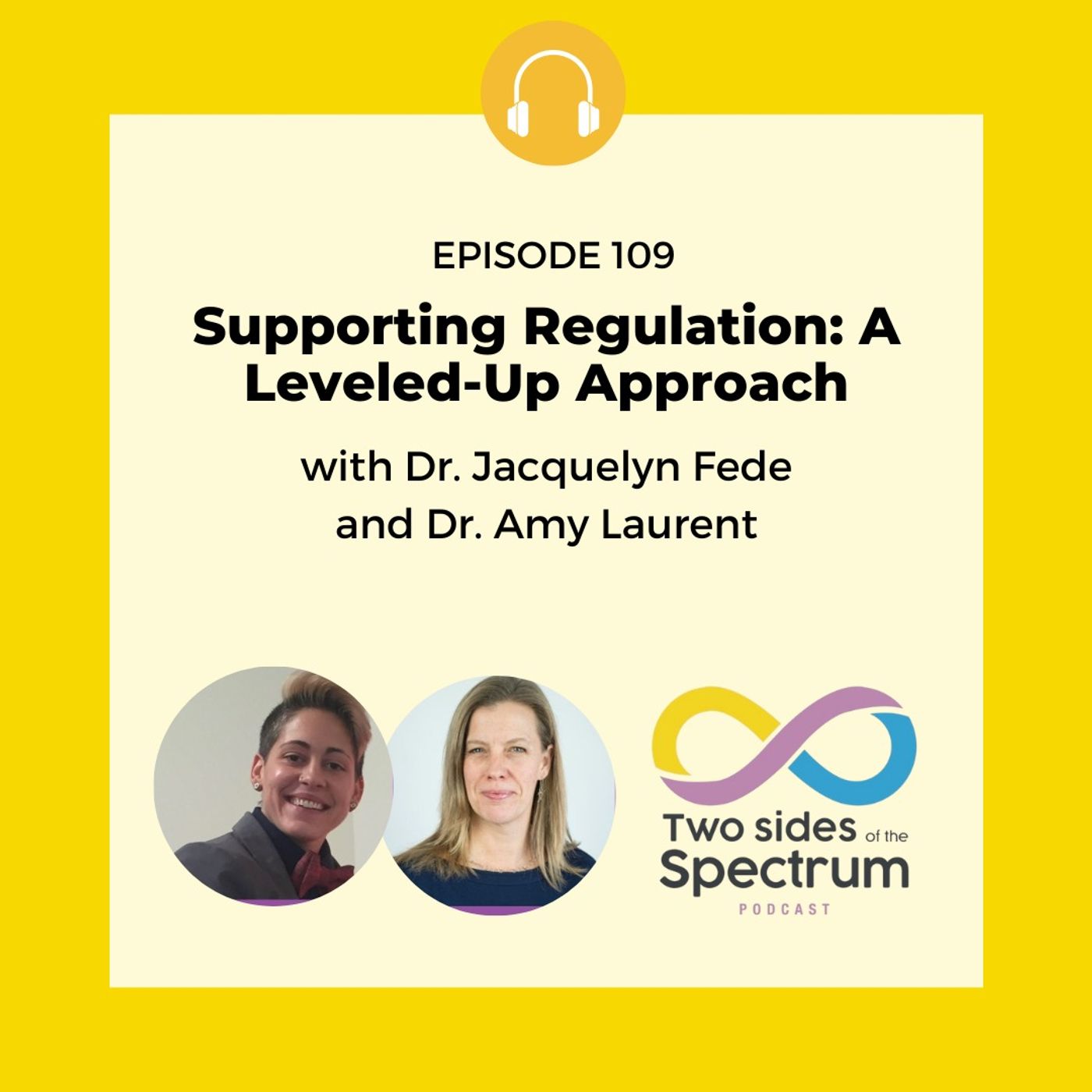
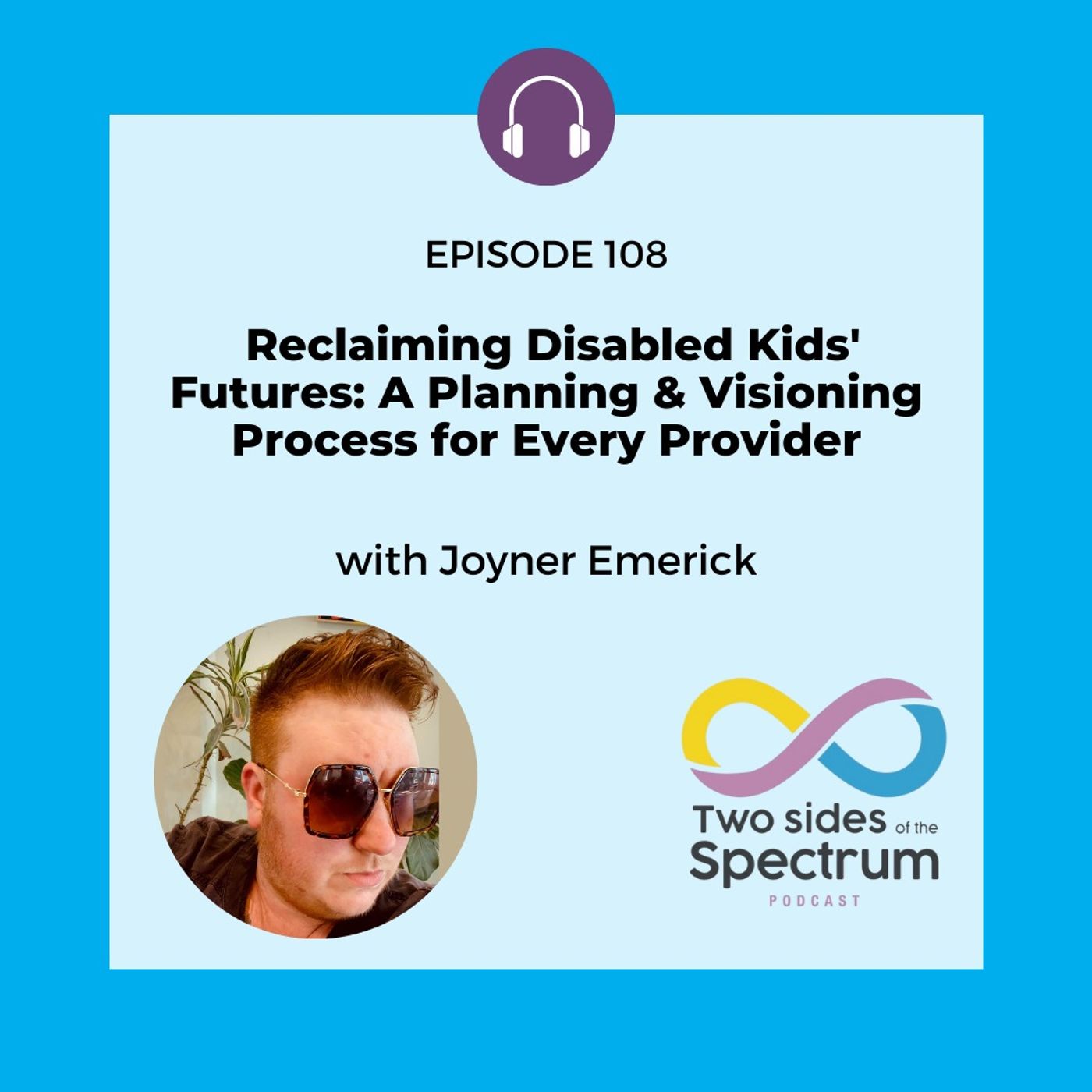
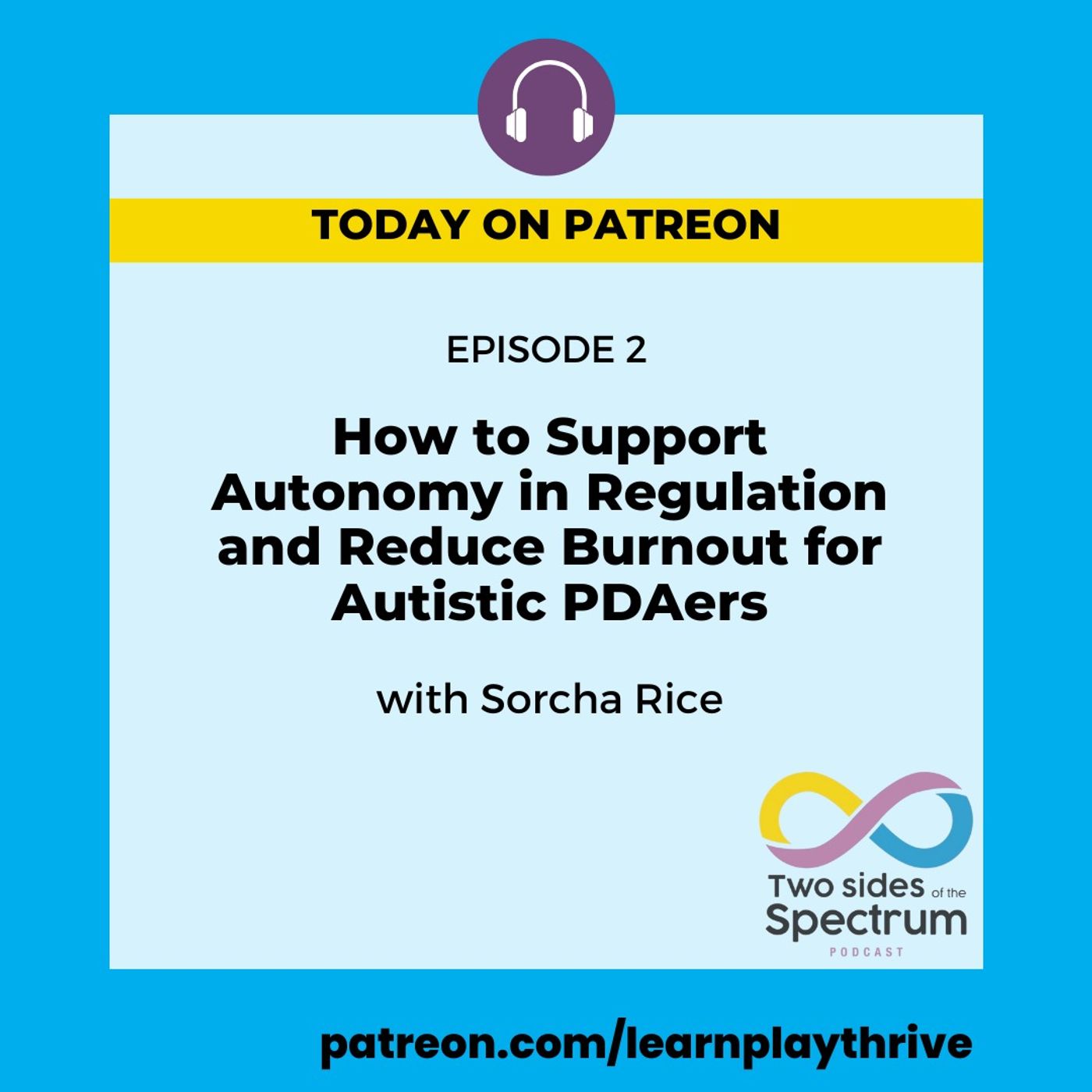
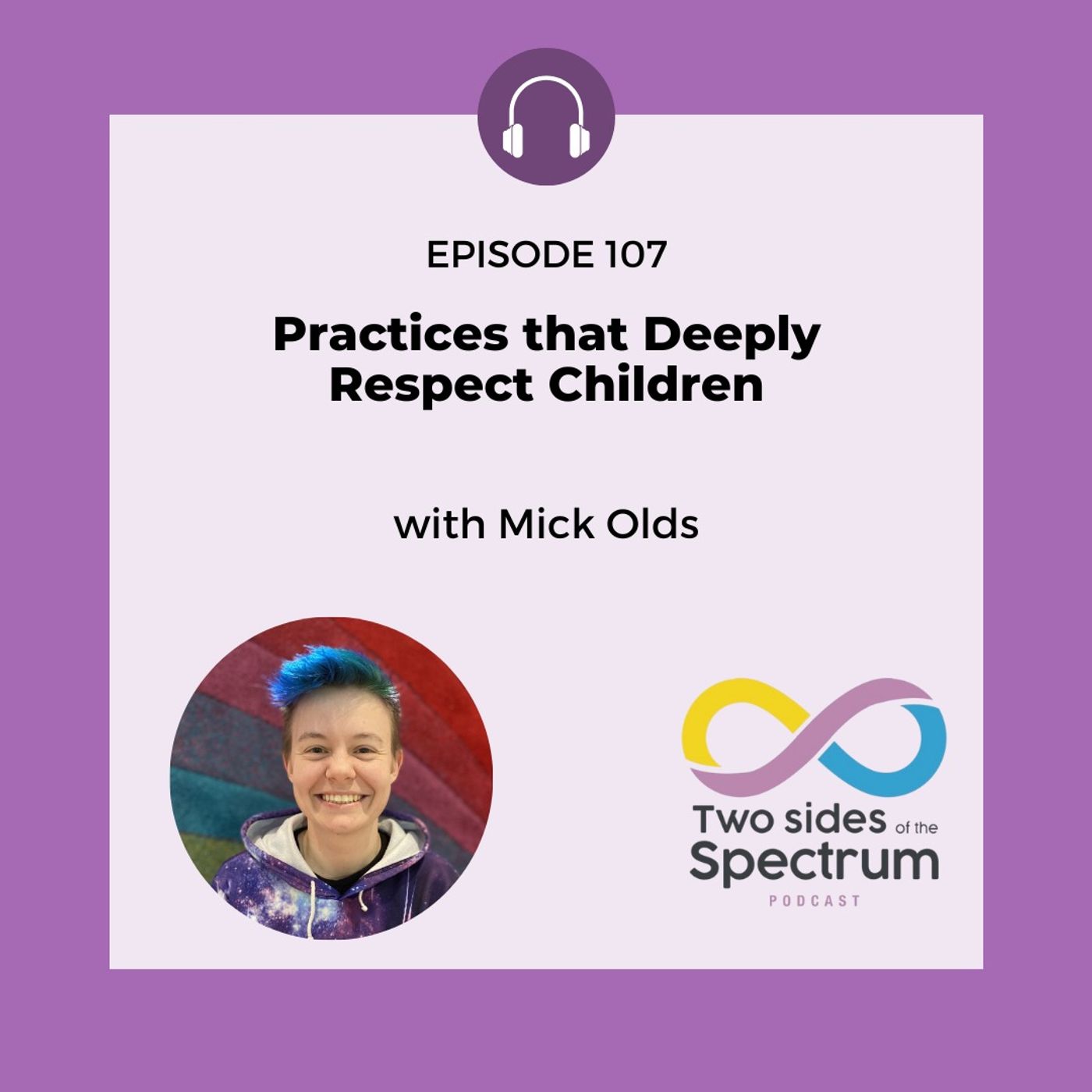
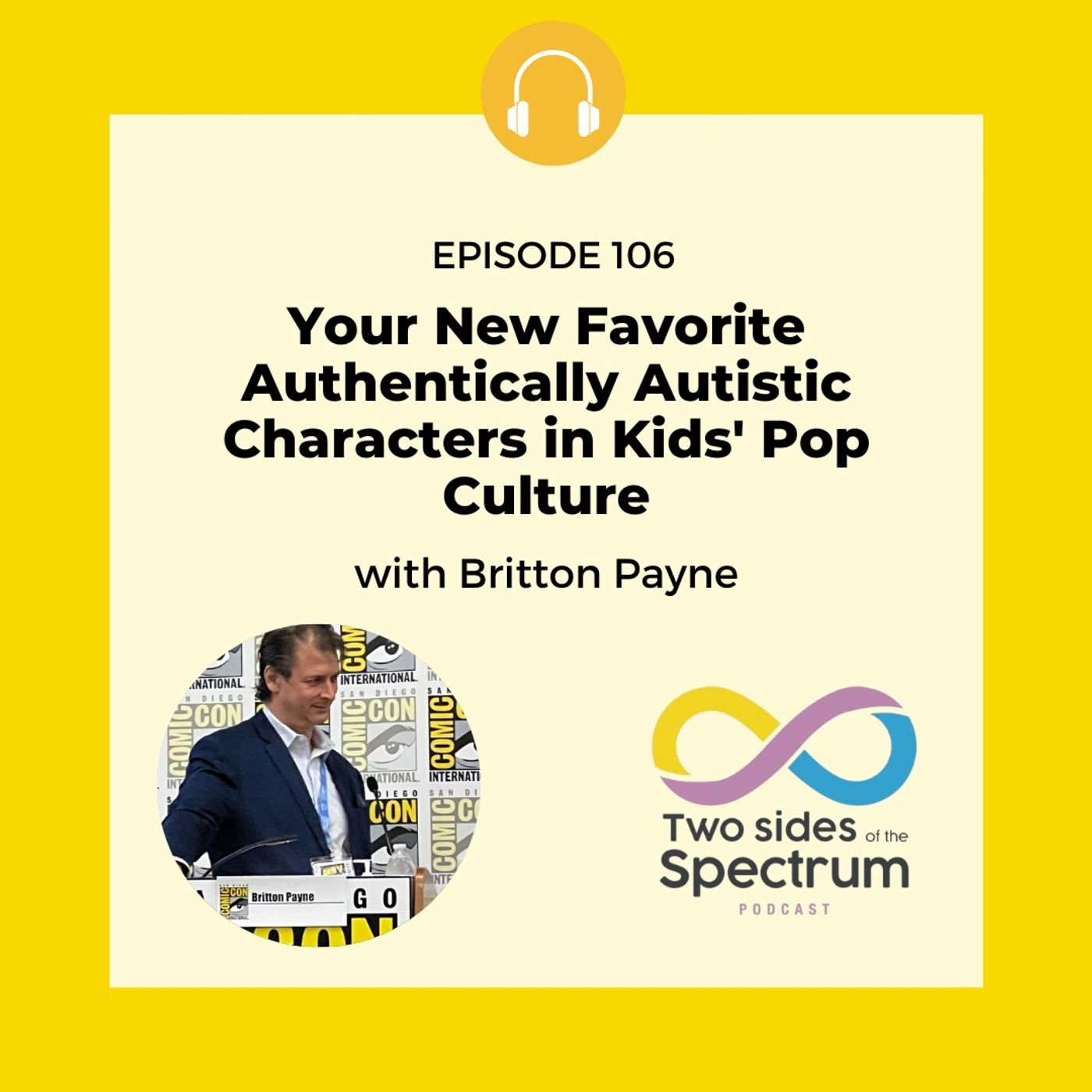
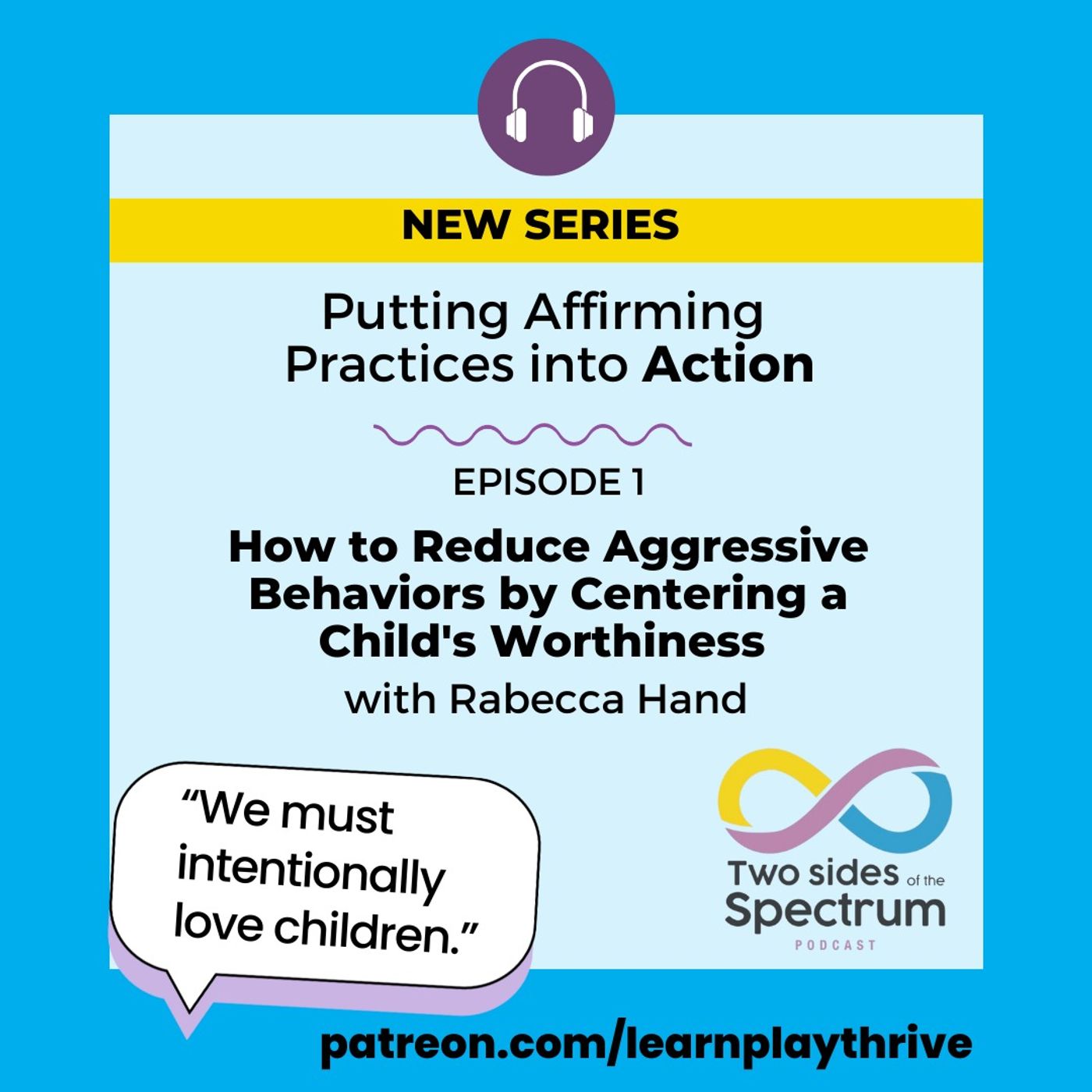
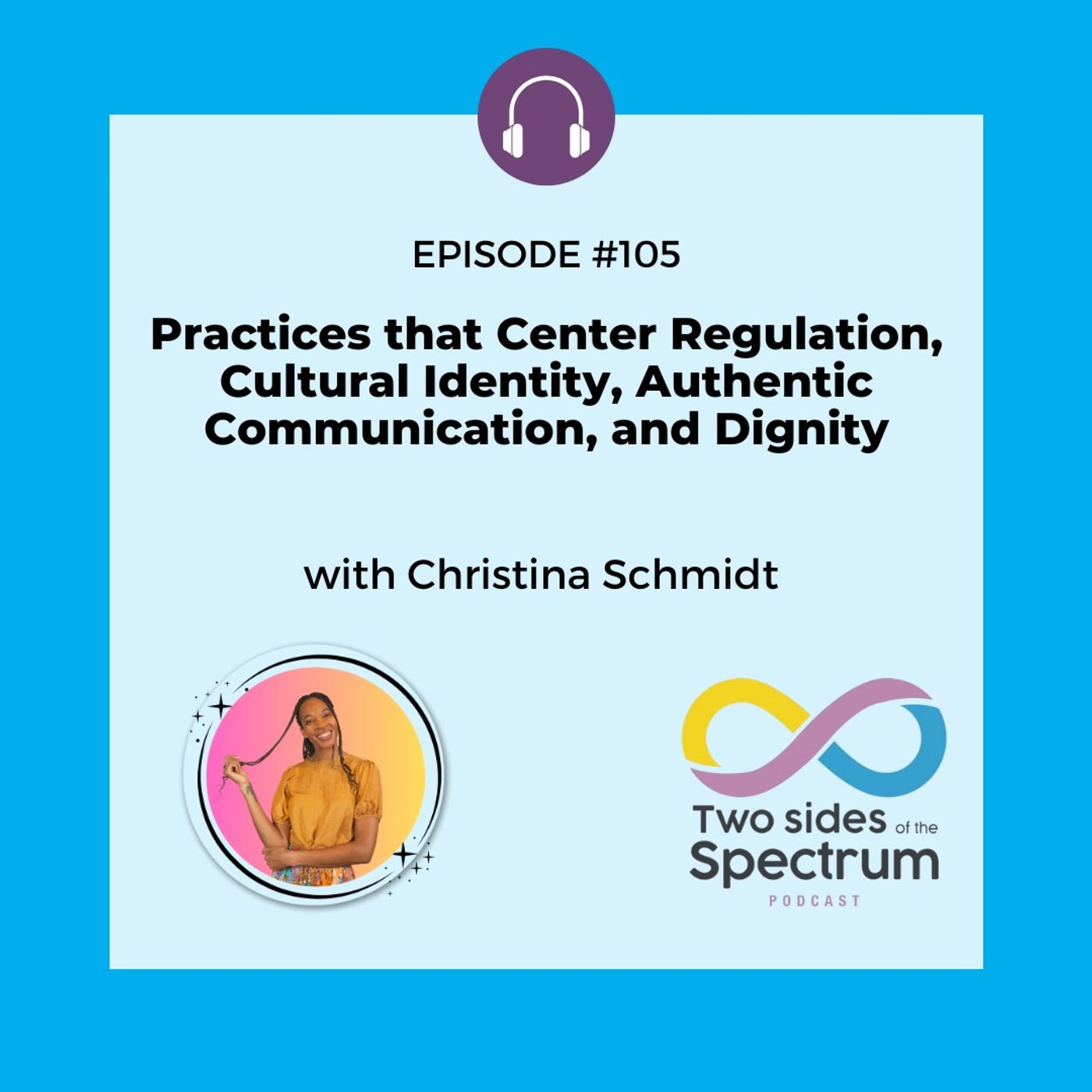
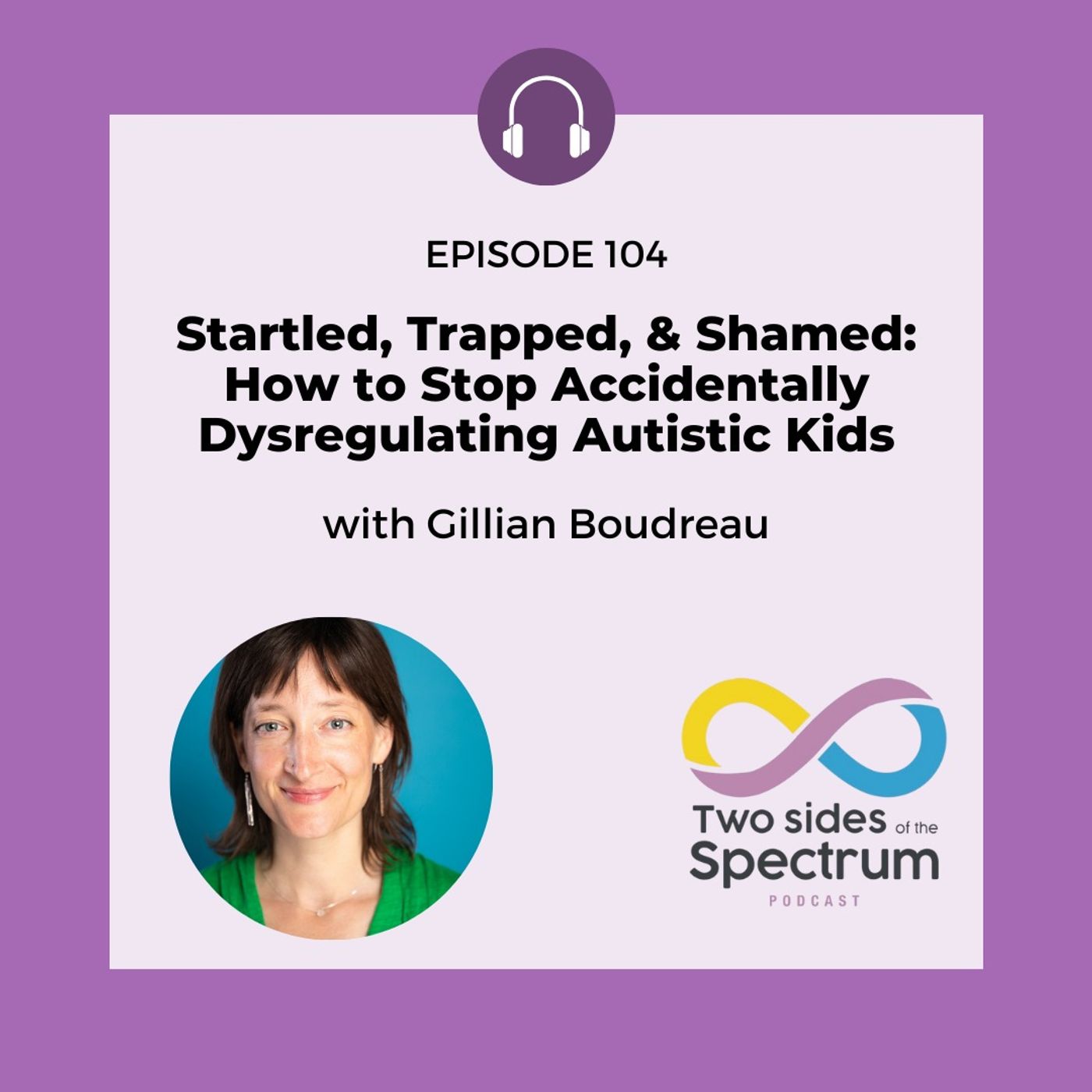
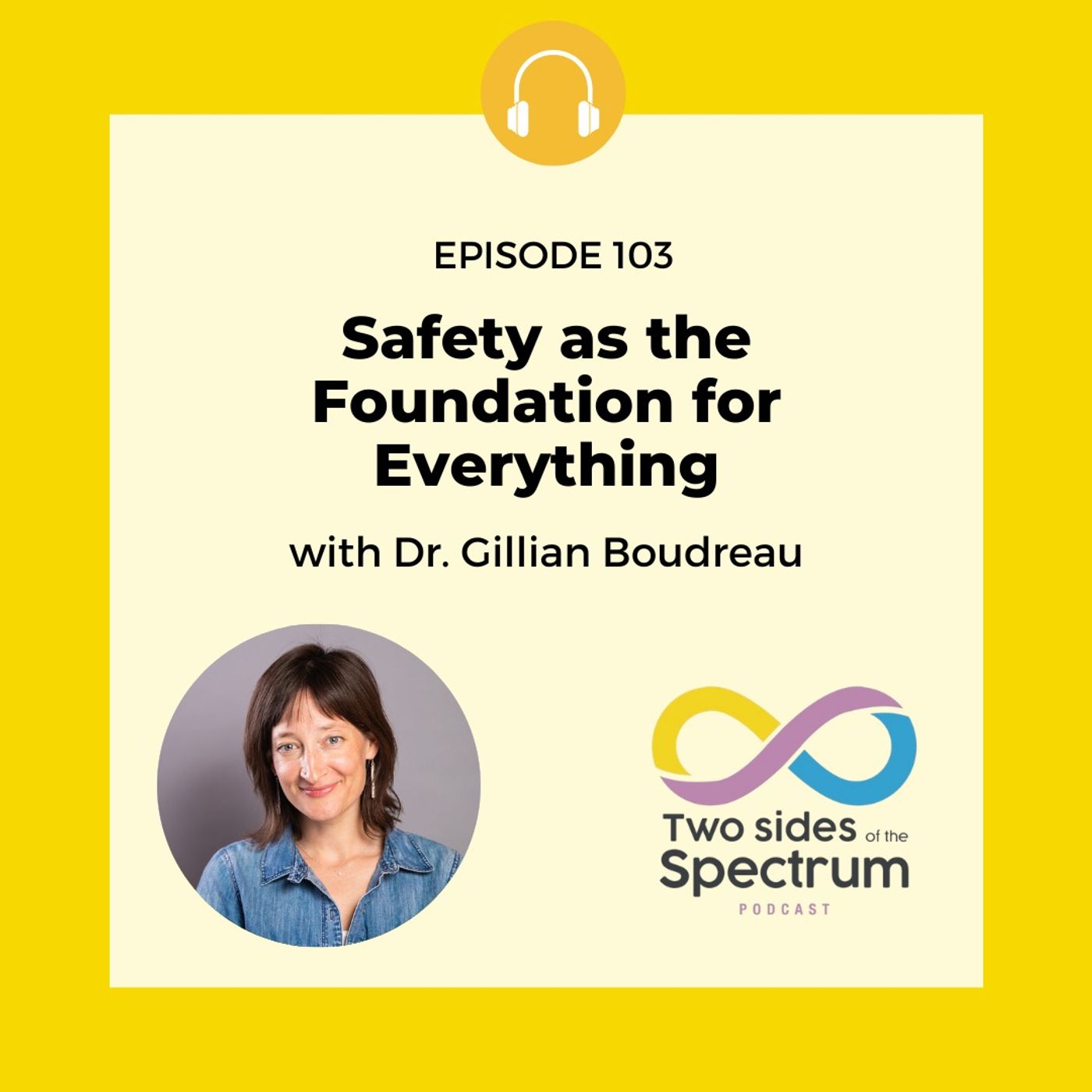
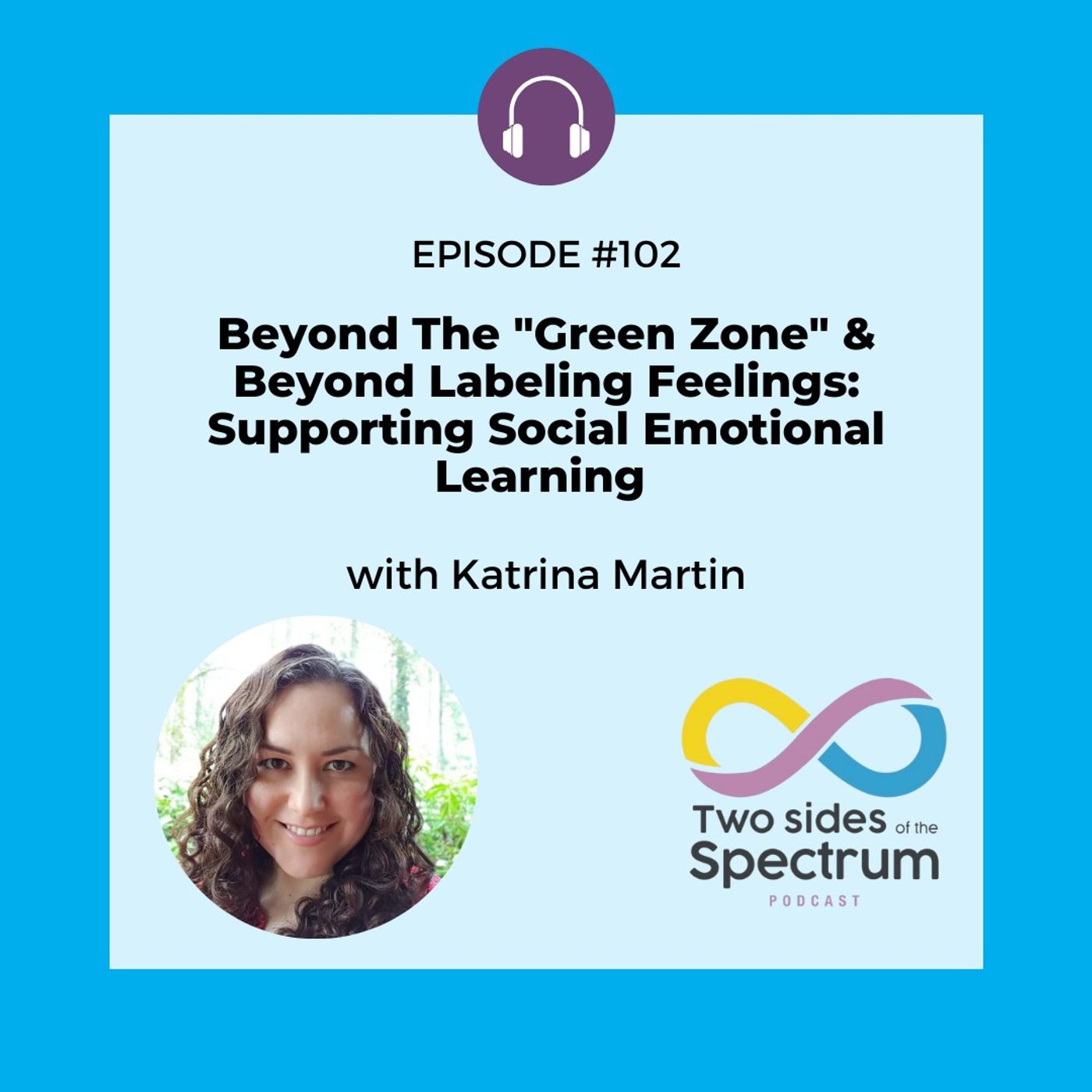
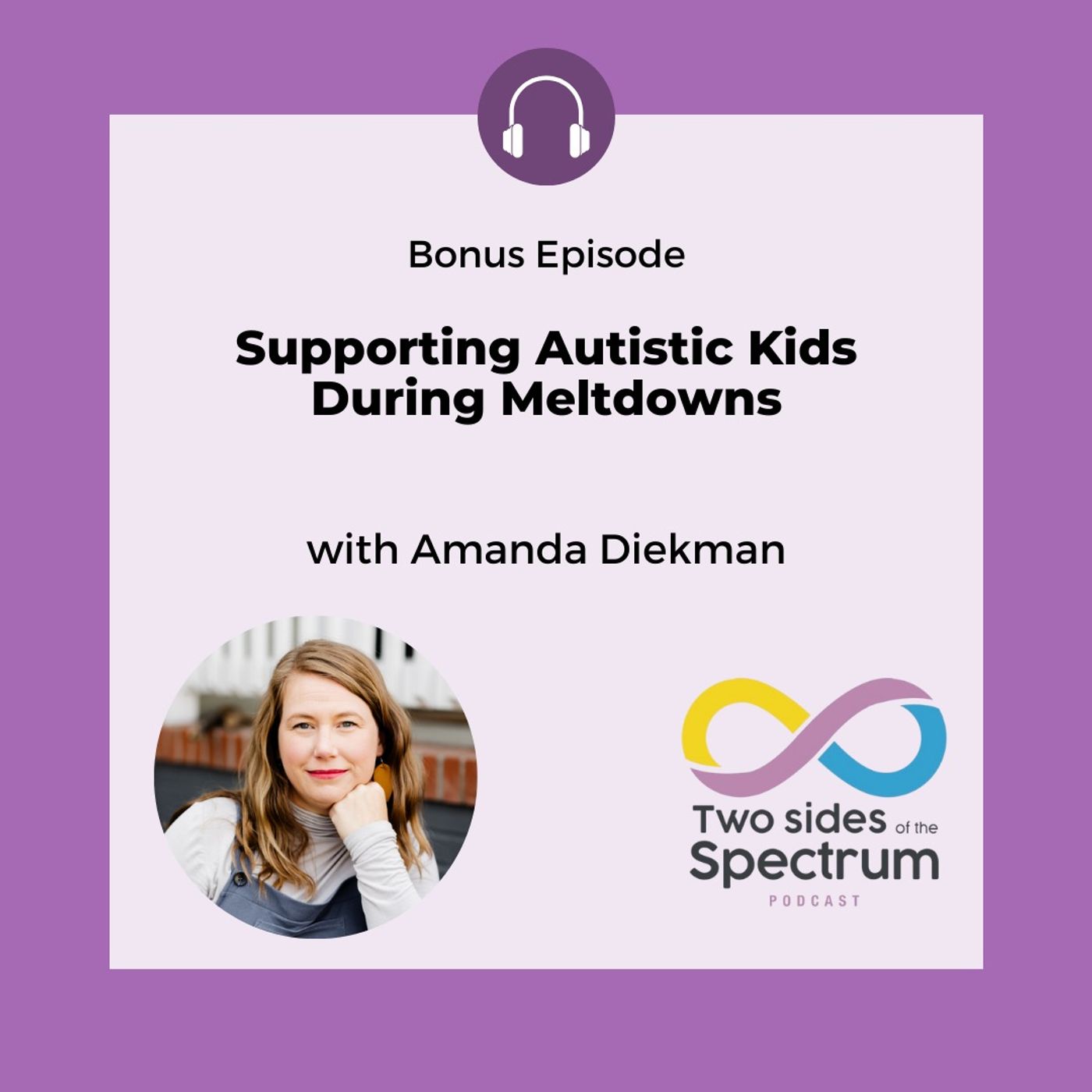
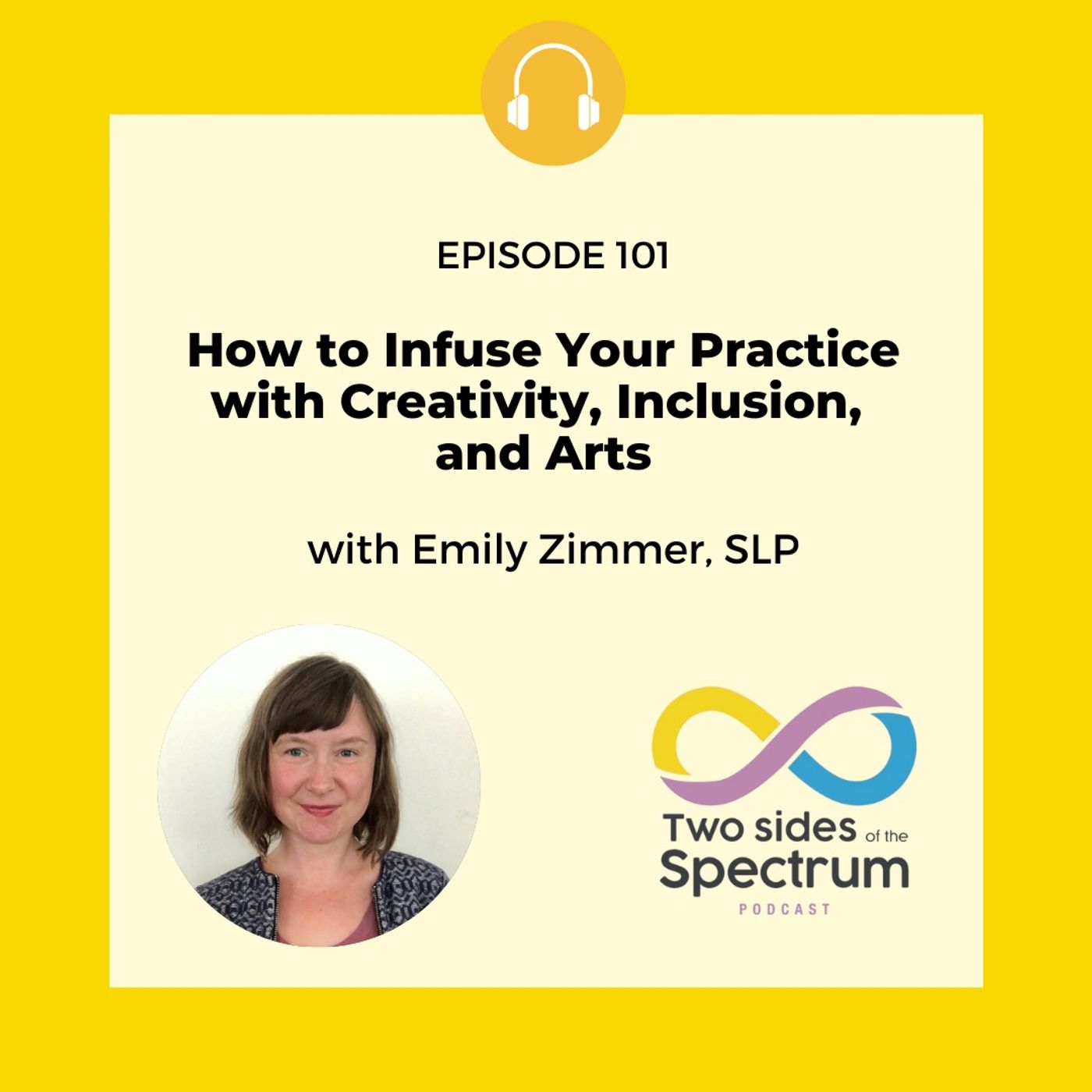

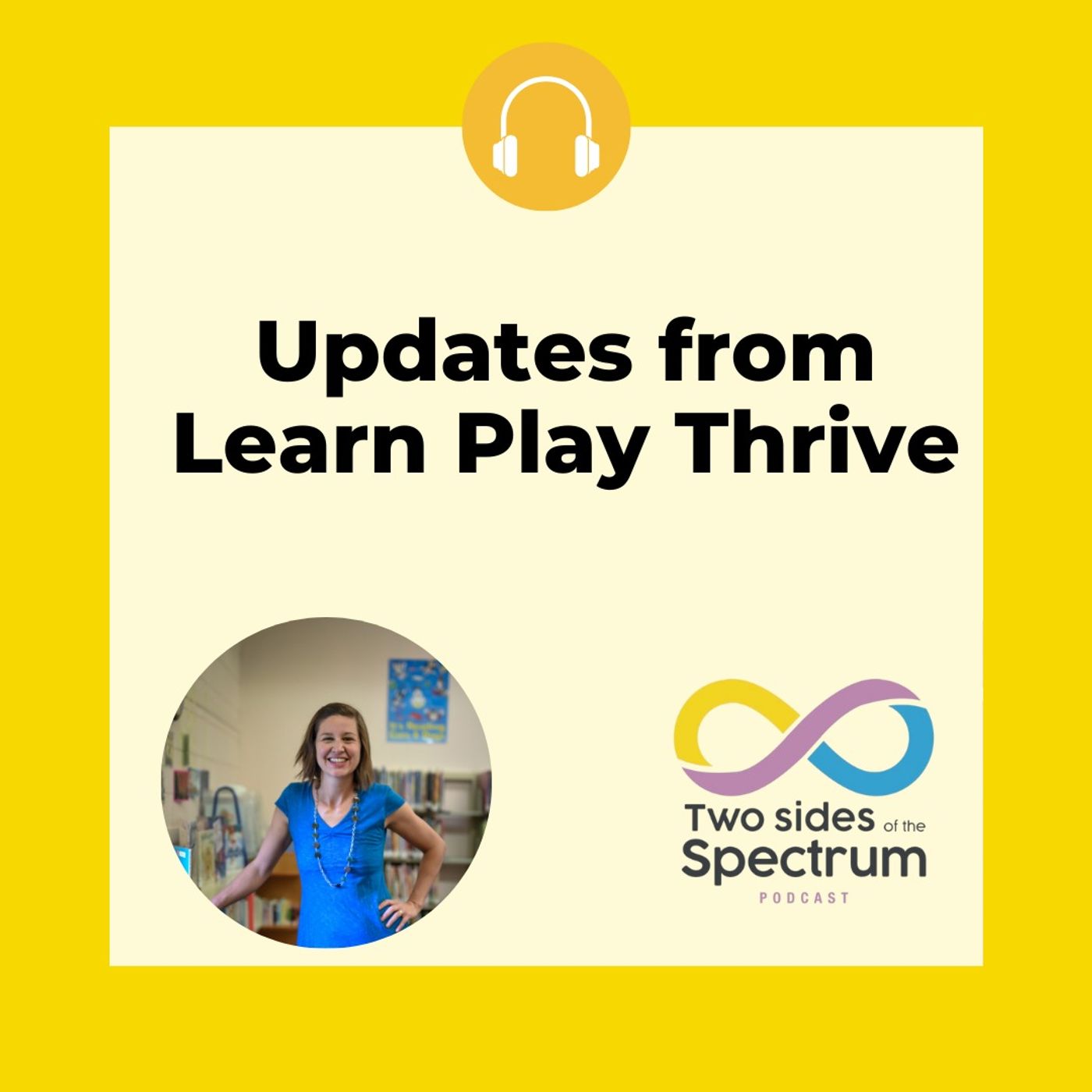









Such a lovely episode! Gave me a lot to think about.
This was sooo great! I feel as if I've done many of the ignorant things mentioned...where can I go next to learn more about the strength based approach?